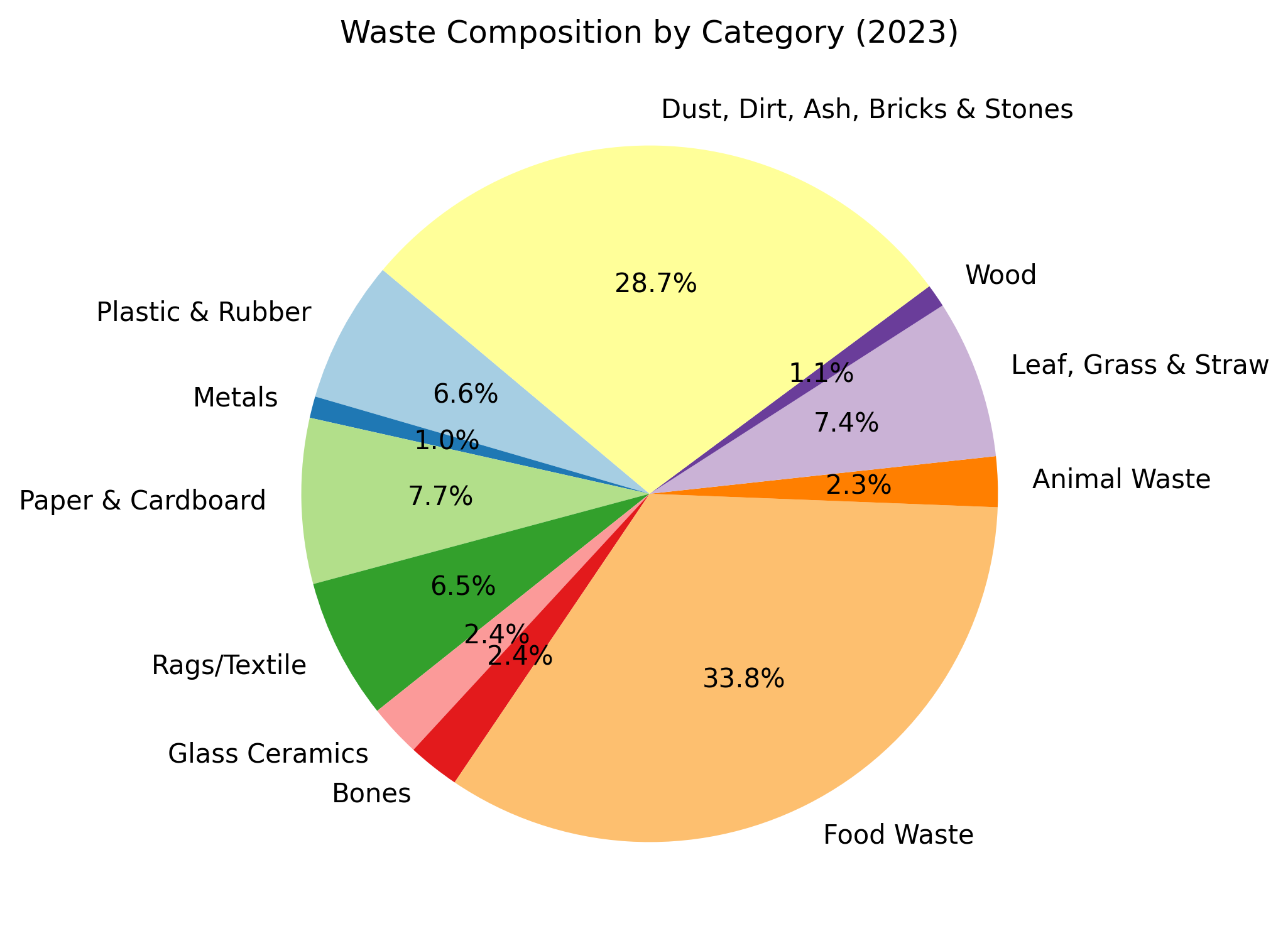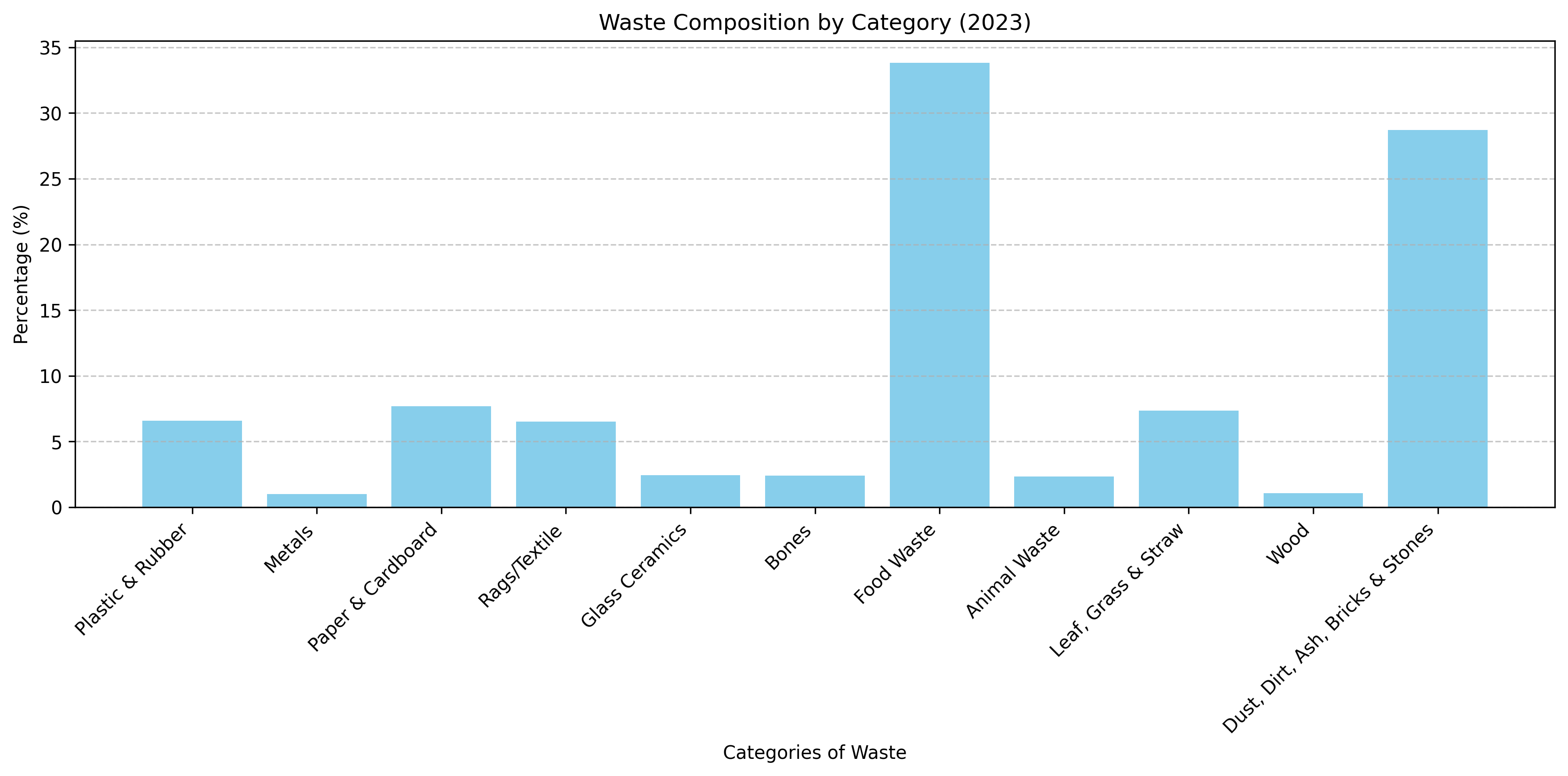Rethink, Reduce, Recycle: A Path to a Healthy Environment
Iftikhar Ahmed
Faisalabad: Rethink, reduce, recycle—a path to a healthy environment that contributes to the health of societies and nations is a universally accepted truth.
However, this is only possible through proper waste collection and disposal, a common issue in urban centers. Unfortunately, the situation is the opposite in major cities of Pakistan, including Faisalabad, where thousands of tons of solid waste remain uncollected.
Waste management is a crucial aspect of combating pollution, as improper waste handling leads to environmental degradation and health hazards, resulting in economic losses amounting to billions of rupees annually.
Faisalabad, a district with a population exceeding 9 million, generates approximately 4,000 tons of solid waste daily. Within the city area, home to 4 million residents, around 1,600 tons of waste is produced each day, much of which remains uncollected or is openly dumped at landfill sites.
The absence of proper waste treatment mechanisms exacerbates environmental challenges in Faisalabad. Landfill sites release greenhouse gases such as methane, while plastic waste contaminates watercourses, posing significant threats to aquatic life.
Additionally, the open dumping and burning of waste contribute to air and soil pollution, jeopardizing human health, harming biodiversity, and disrupting the ecosystem.
Faisalabad’s Waste Management Challenges: Moving Toward Sustainability
Although the Faisalabad Waste Management Company (FWMC) strives to properly manage solid waste, it still lacks the capacity to collect all generated waste and utilize it effectively.
“The FWMC works hard to handle waste in urban areas, but it currently collects and disposes of 85 percent of the total waste,” said an FWMC spokesperson.
“On average, the company collects 1,350 tons of waste daily using its fleet of 200 vehicles and a workforce of approximately 3,000 people,” he explained. “To address the growing waste management needs, the company is recruiting additional workers and procuring more vehicles to handle the total waste generated.”
Waste management has become a critical issue due to the rapid population growth in urban areas. Improper disposal of waste not only pollutes the environment but also contributes to smog during winter and poses serious risks to human health.
A 2023 study revealed the composition of Faisalabad’s waste: (Pia Chart) The majority of the city’s waste consists of organic material, including kitchen waste, food and fruit remains, spoiled or fermented food, leaves, and garden waste. Paper waste, such as cardboard, packing material, newspapers, and magazines, makes up the second-largest portion, while construction and demolition debris accounts for nearly 29 percent.
The majority of the city’s waste consists of organic material, including kitchen waste, food and fruit remains, spoiled or fermented food, leaves, and garden waste. Paper waste, such as cardboard, packing material, newspapers, and magazines, makes up the second-largest portion, while construction and demolition debris accounts for nearly 29 percent.
What do experts recommend?
Rana Khushi Muhammad, a retired municipal officer, emphasized the importance of waste segregation at the source. “Separating hazardous waste from organic and recyclable materials simplifies recycling and reduces the burden on landfill sites,” he noted.
He suggested that the government incentivize public participation by providing color-coded waste bins and launching community education programs. “Efficient recycling infrastructure can ensure the reuse of plastic, glass, and metal materials, reducing the need for raw material extraction,” he added.
Highlighting international practices, Khushi Muhammad explained that many countries have successfully implemented deposit-return systems and advanced recycling plants. “Local governments can establish similar systems through public-private partnerships,” he proposed.
Public Relations Officer of the University of Agriculture Faisalabad (UAF), Ahmad Sheharyar, underscored the potential of recycling organic waste through composting. “Organic waste constitutes a significant portion of municipal waste, and composting can reduce landfill dependency while producing nutrient-rich fertilizer for agriculture,” he stated.
He suggested urban areas adopt decentralized composting hubs and encouraged rural communities to implement small-scale composting initiatives for organic waste.
Innovative Waste-to-Energy Solutions
Dr Muzammal Hussain, an Assistant Professor at the National Textile University (NTU), highlighted the need for innovative technologies to convert waste into energy.
“The government should introduce waste-to-energy programs through public-private partnerships,” he proposed. “Using technologies such as anaerobic digestion, non-recyclable waste can be converted into usable energy, reducing landfill dependency and creating an alternative energy source.”
He also stressed the importance of strong governmental leadership in implementing waste management regulations and incentivizing sustainable practices, including bans on single-use plastics and the introduction of landfill taxes.
Dr. Muzammal also called for active engagement with students, the business community, and civil society through workshops, cleanup drives, and competitions. “Public awareness programs highlighting the environmental and economic benefits of reduced waste generation can foster a sense of responsibility among citizens,” he emphasized.
Improving waste management is not the sole responsibility of the government. State departments must encourage active participation from individuals, civil society, and the business community.
By adopting innovative strategies, promoting responsible practices, investing in advanced technologies, and fostering a culture of environmental consciousness, Faisalabad can address its waste management challenges effectively. These efforts will not only reduce pollution but also ensure a healthier environment for future generations.
The feature report was released by APP and reproduced by The PenPK.com. The statistics used in the report are the sole responsibility of the author.

Comments are closed.